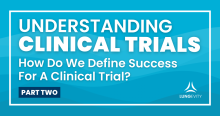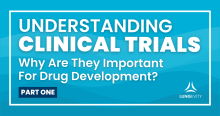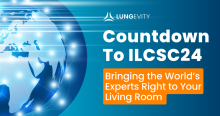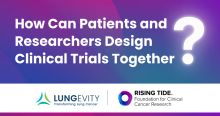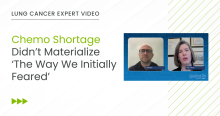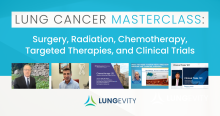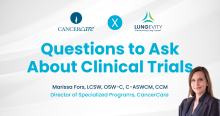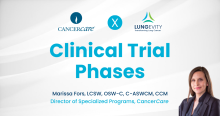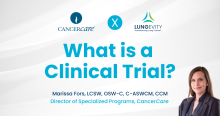How We Define Success for a Clinical Trial
Read time: 6 minutes. This is Part 2 of 3 in our series on how drugs get approved to treat lung cancer. Make sure to read Part 1 on the phases of clinical trials and why they are important for new drug development. We all want a treatment for lung cancer that is completely safe and entirely effective. While researchers are working toward that goal, the reality is we aren’t there yet. Every treatment we are considering comes with potential benefits and side effects. The overarching role of clinical trials is to measure the pros and cons of each drug to help us identify the best treatments for

